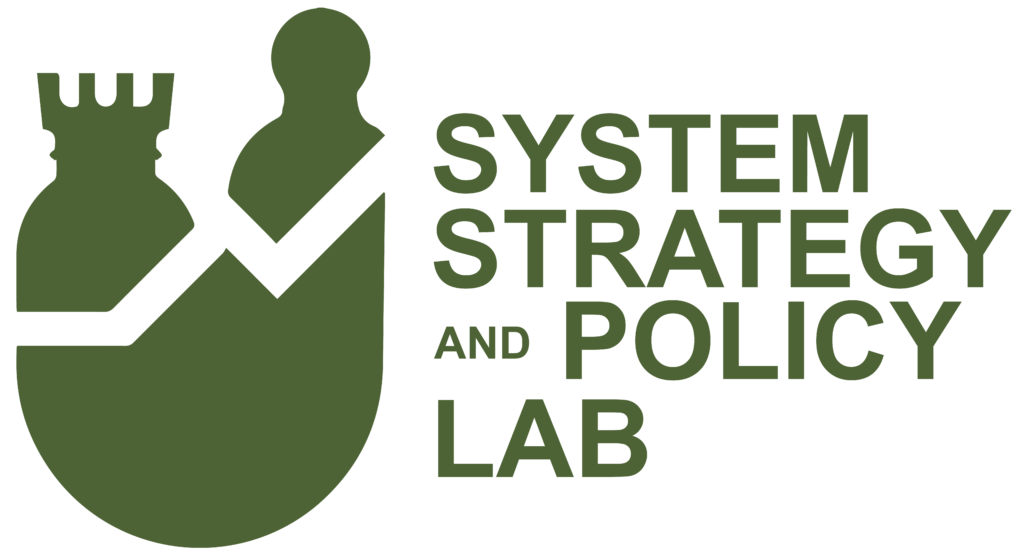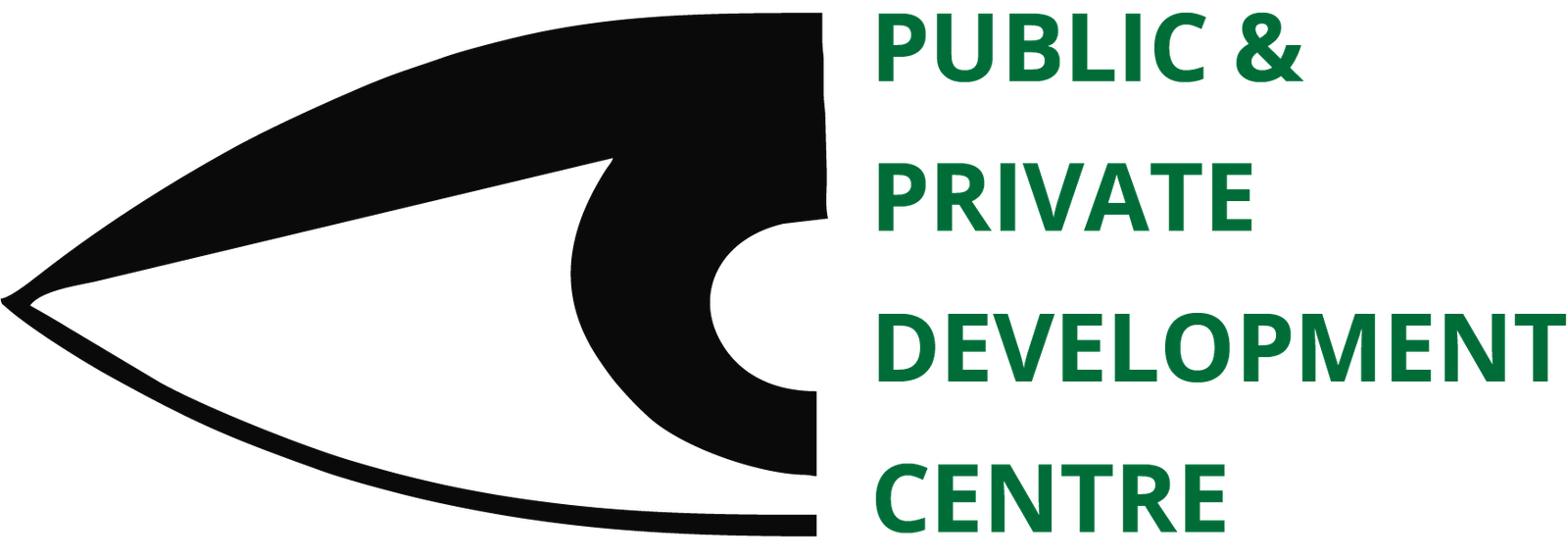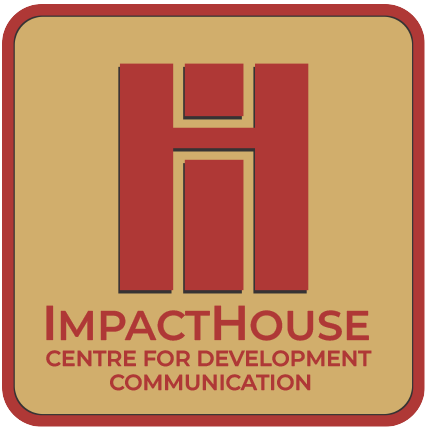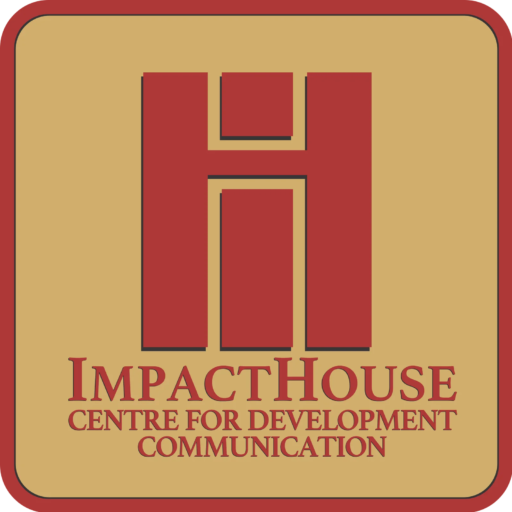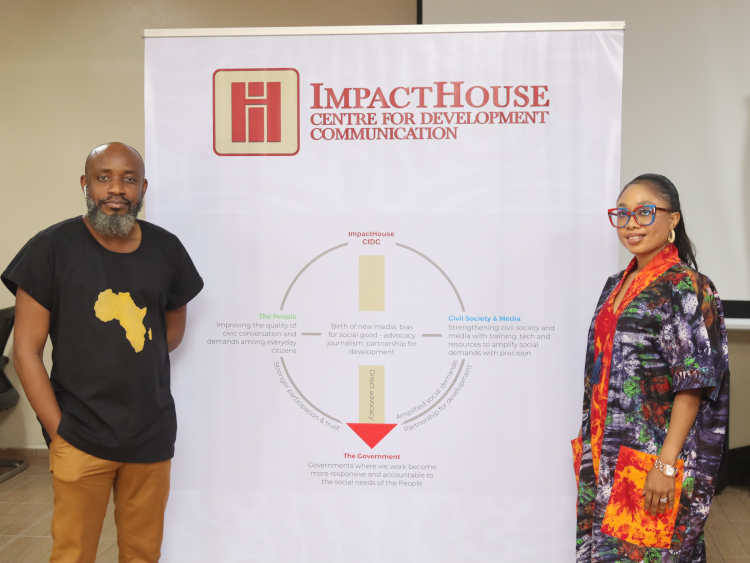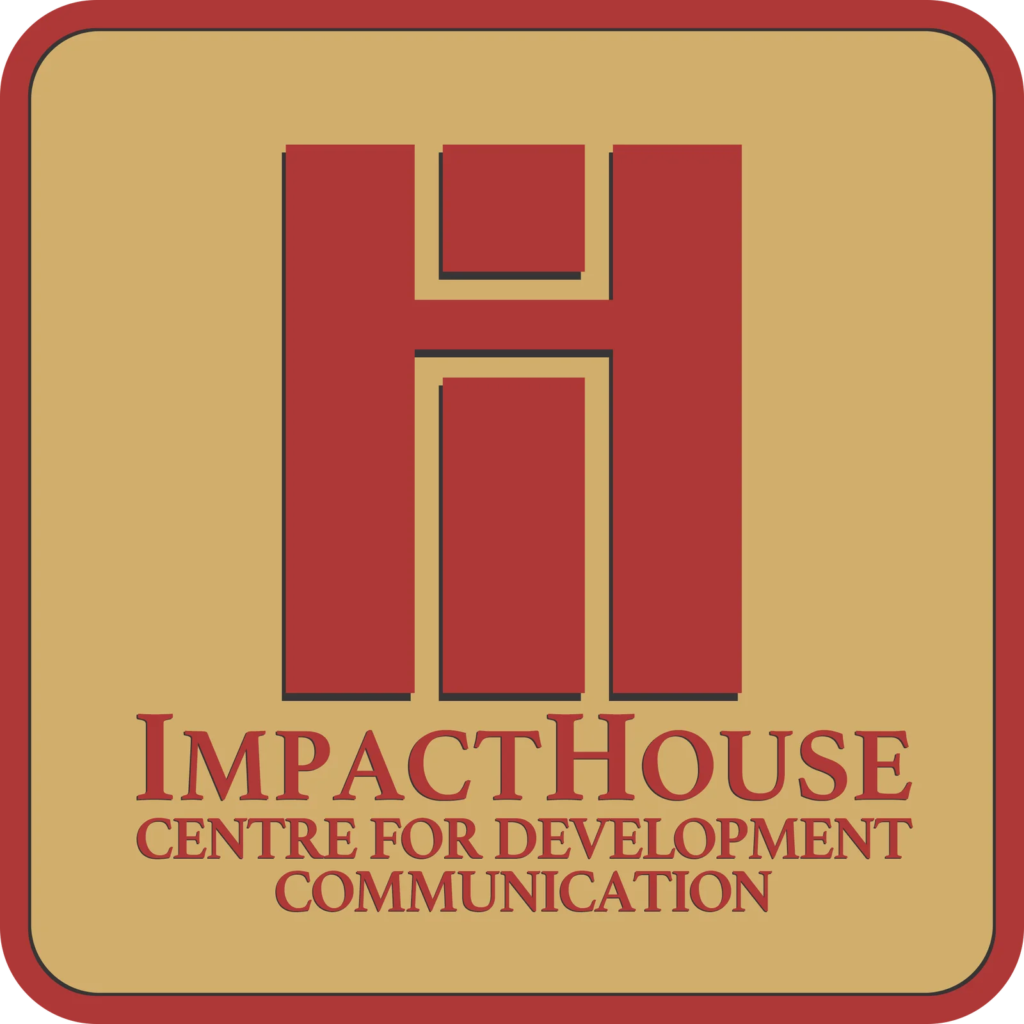Africa at a Tipping Point
Tech grows, social media expands, but civic voices struggle to be heard.
Our Work
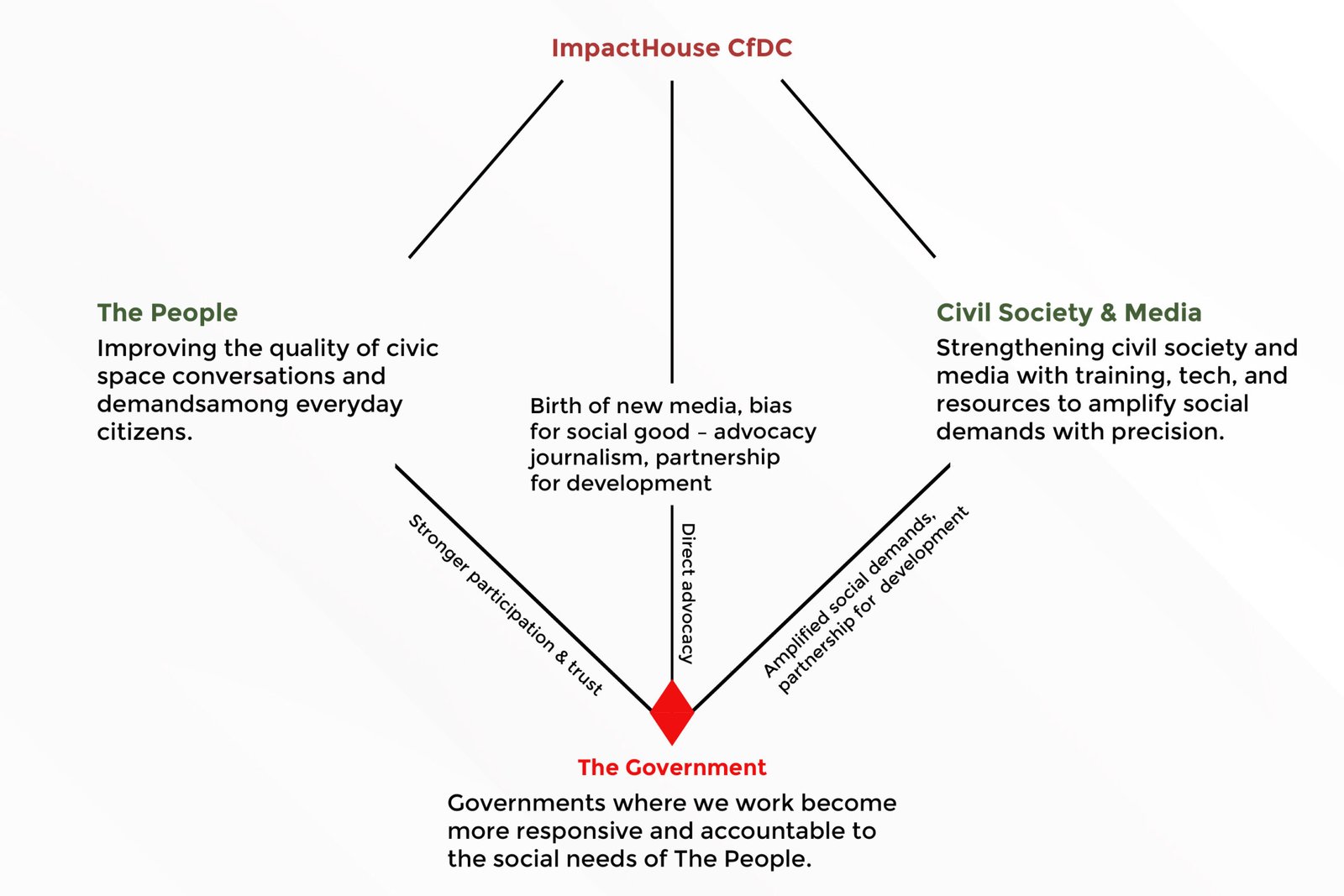
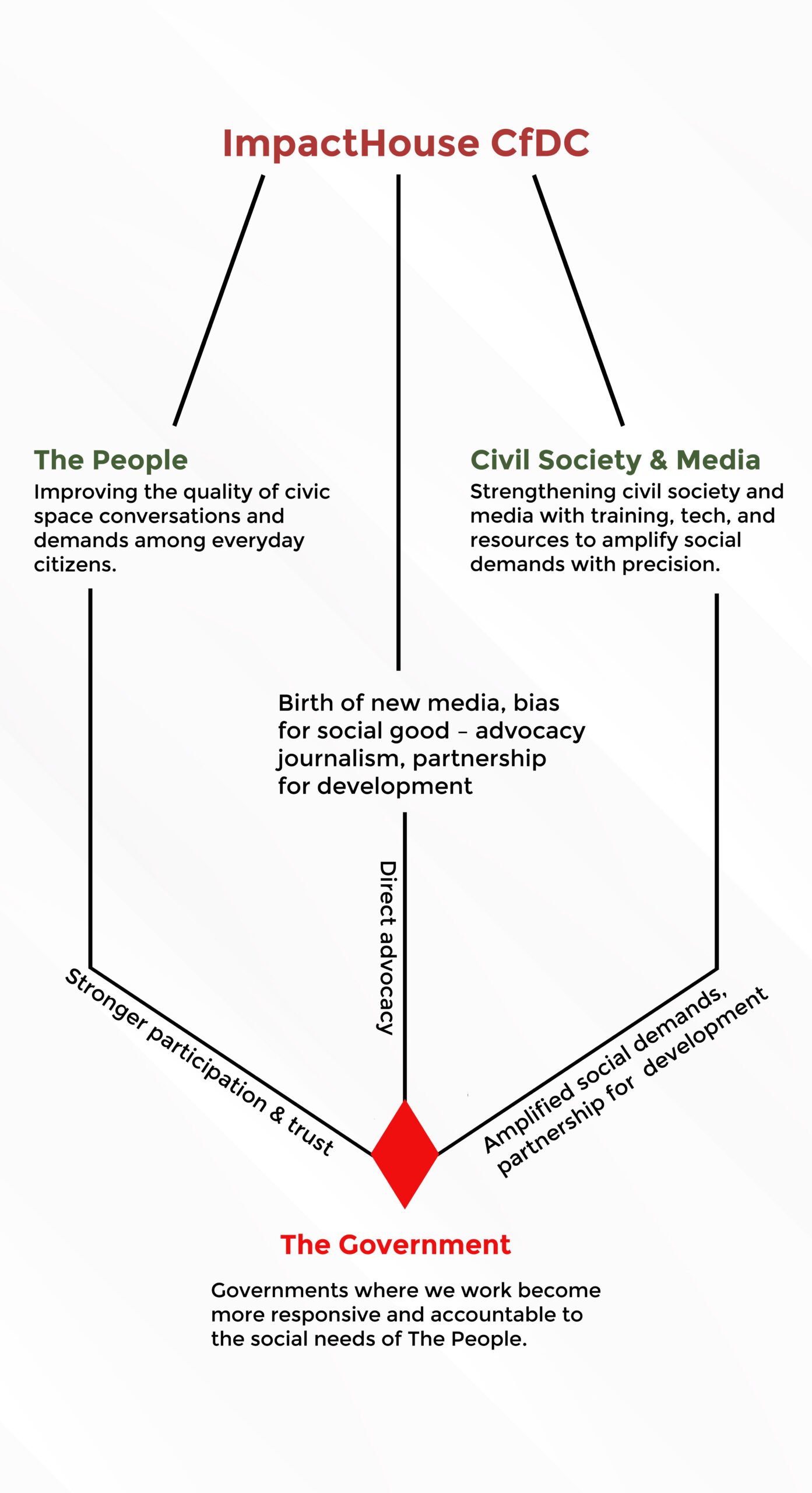
About ImpactHouse
We are a nonprofit working to improve the quality of civic conversations among everyday citizens in Africa to drive responsive and accountable governance. Our work spans critical areas such as civic participation and good governance, gender equity and justice, education and human rights, and media and civil society development.
Key Interventions

Development Diaries
A leading pro-development news brand in Africa taking an evidence-based stance on issues and demanding action with a bias for the public good.

Change Reporting
Tok am Well
This is a community-focused initiative that sparks meaningful dialogue and deepens understanding among everyday citizens, empowering them to engage with the social issues that matter most to their well-being.
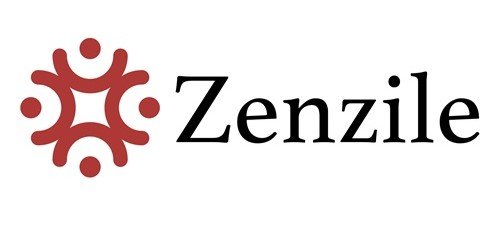
Zenzile
Sauti Ukweli
Sauti Ukweli is the voice of the everyday African – bold, satirical, and unfiltered – breaking down social issues, making them relatable, and calling out leaders to deliver on their promises.
State of Trust
The State of Trust is an annual research report that uncovers the key factors shaping trust between citizens and public officials.
Key Achievements
News stories published
Journalists and civil society professionals trained
Stories on GRESP supported
Calls to action issued
Power of Collaboration
We have partnered with organisations that share our vision of an Africa of informed and active citizens driving sustainable development.
